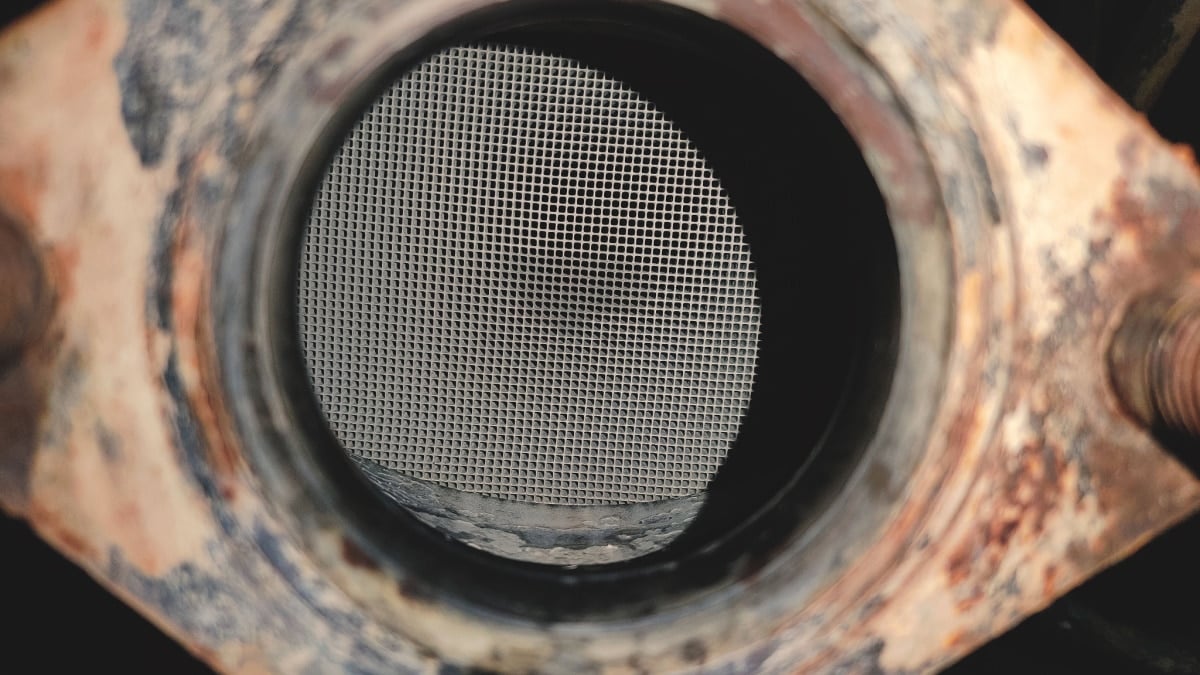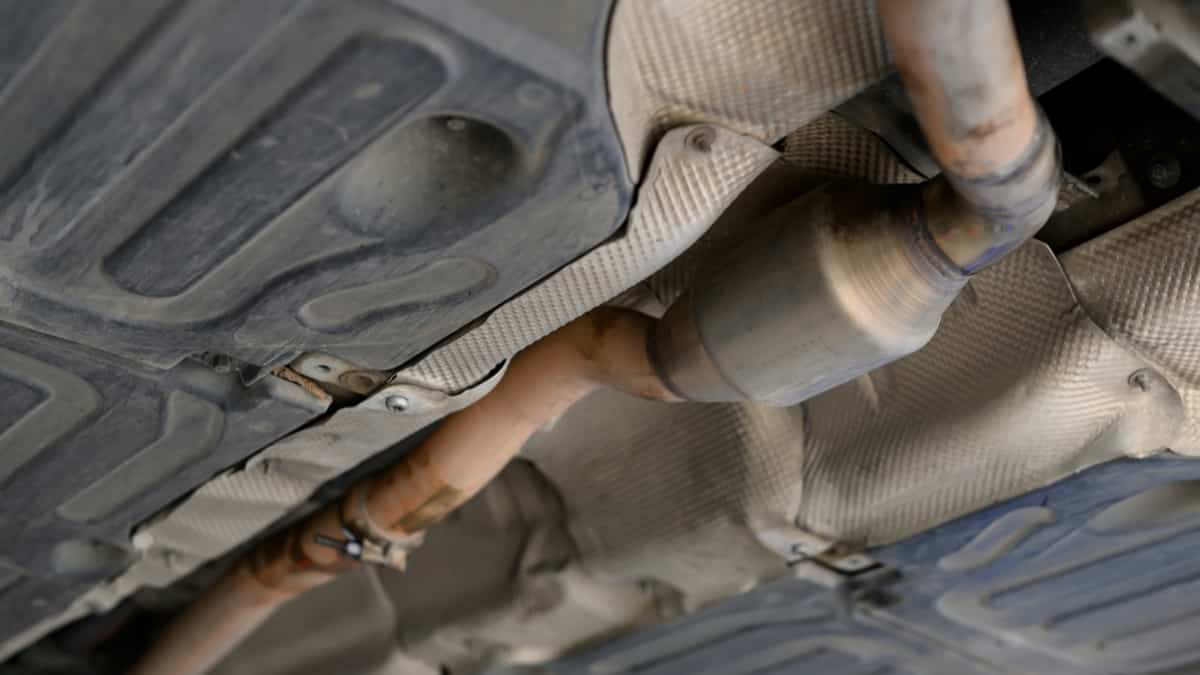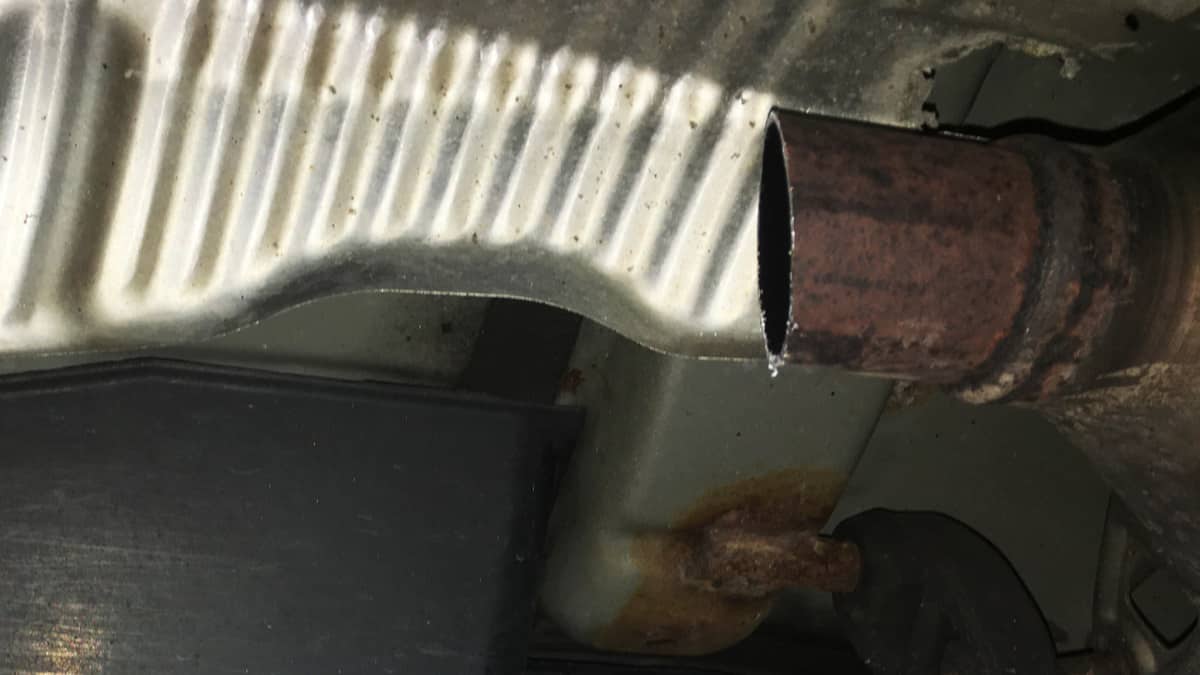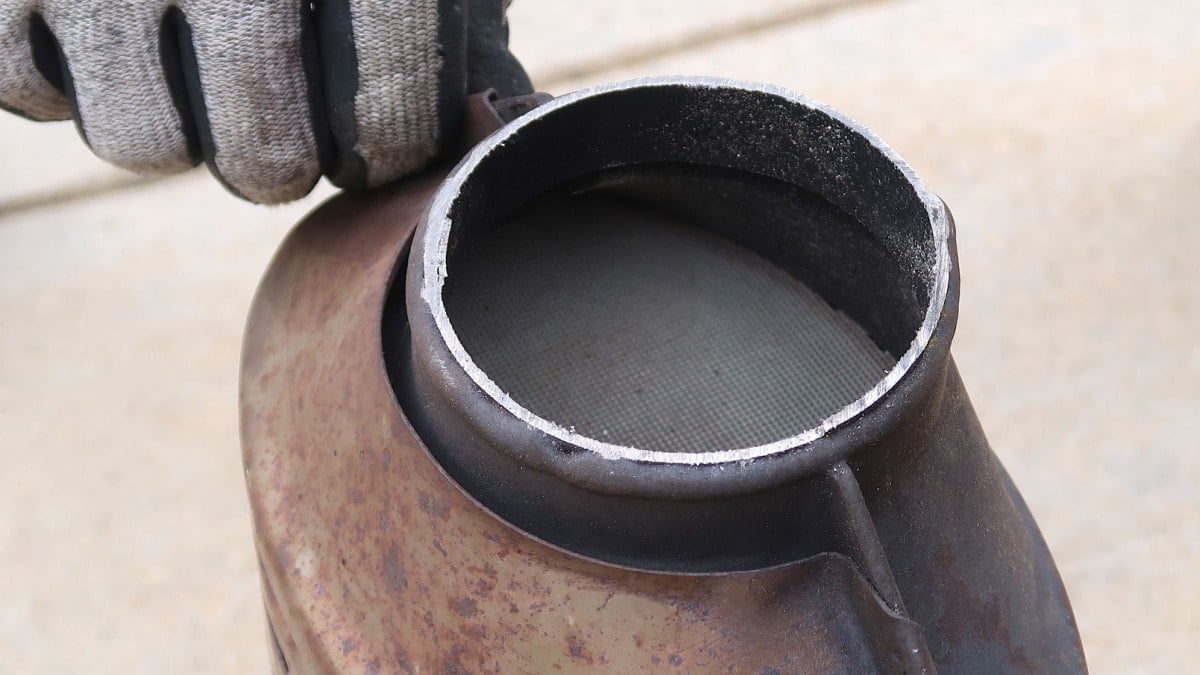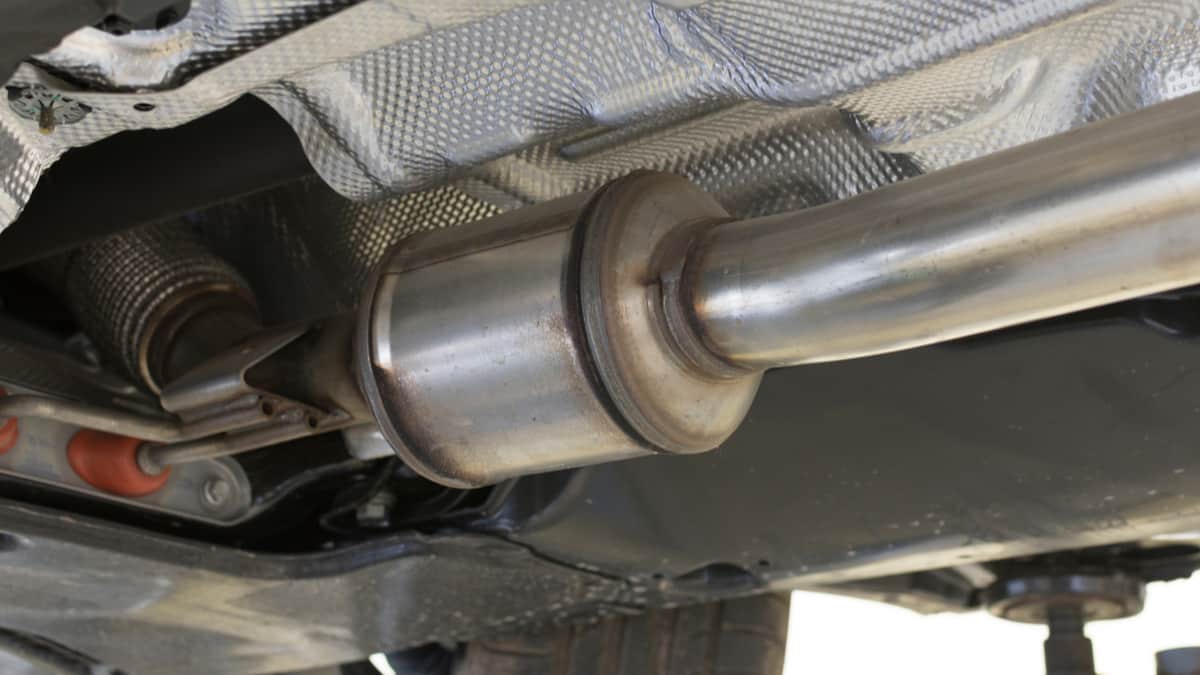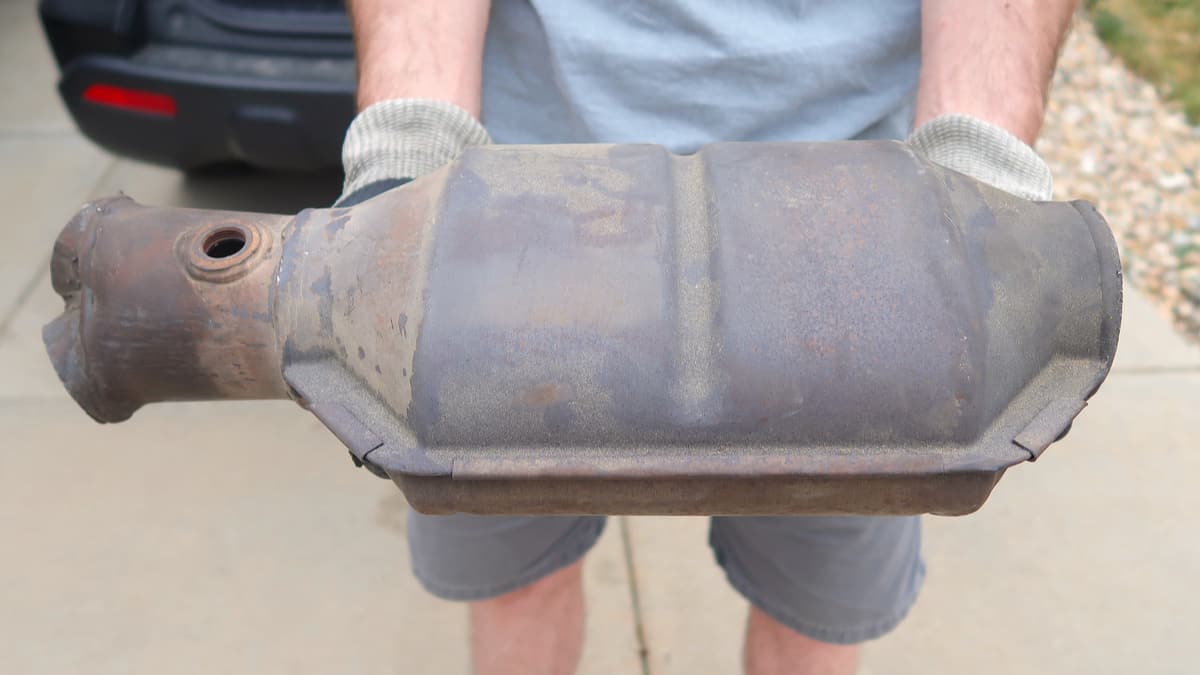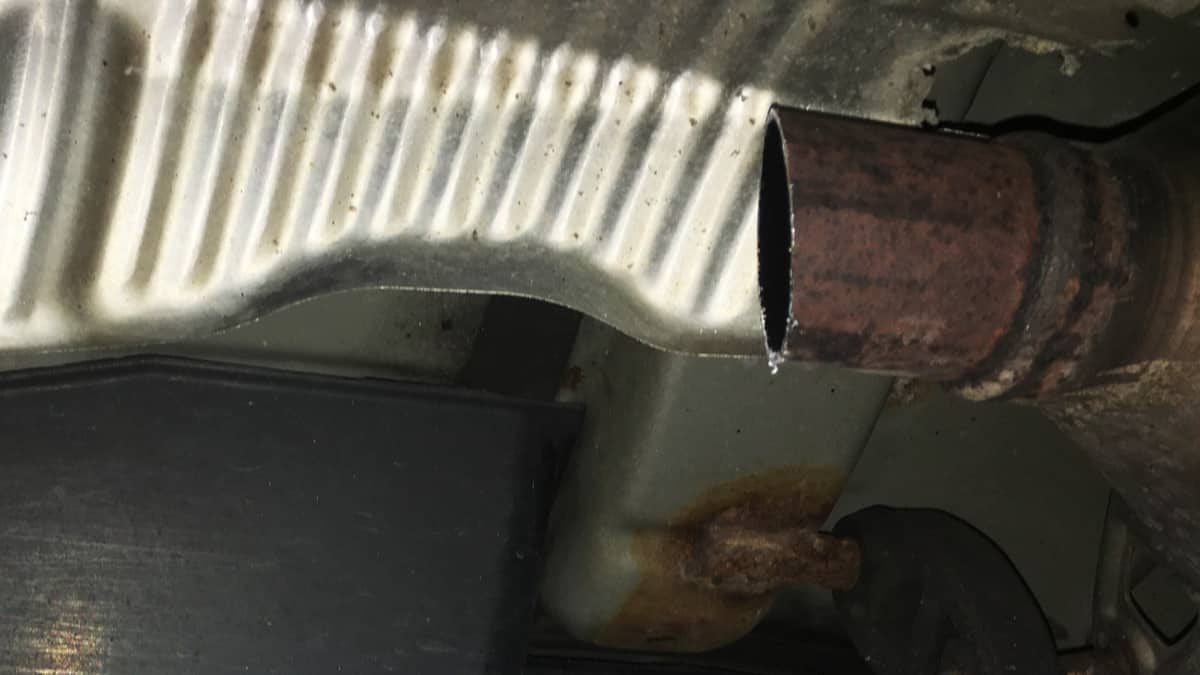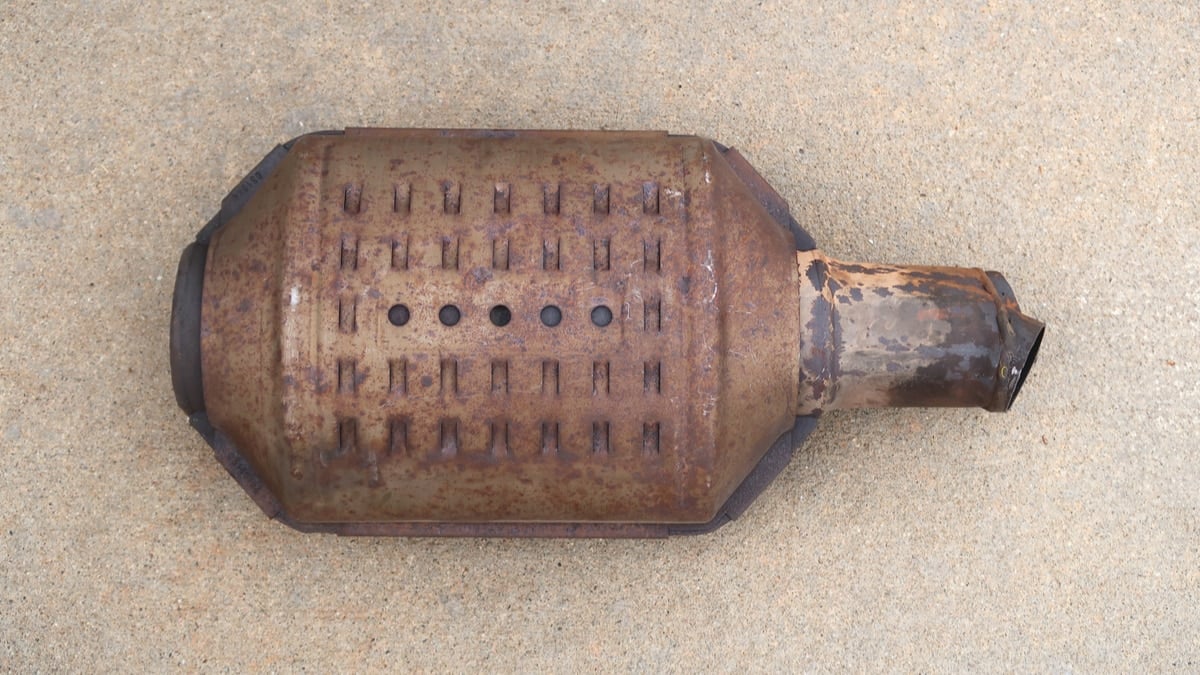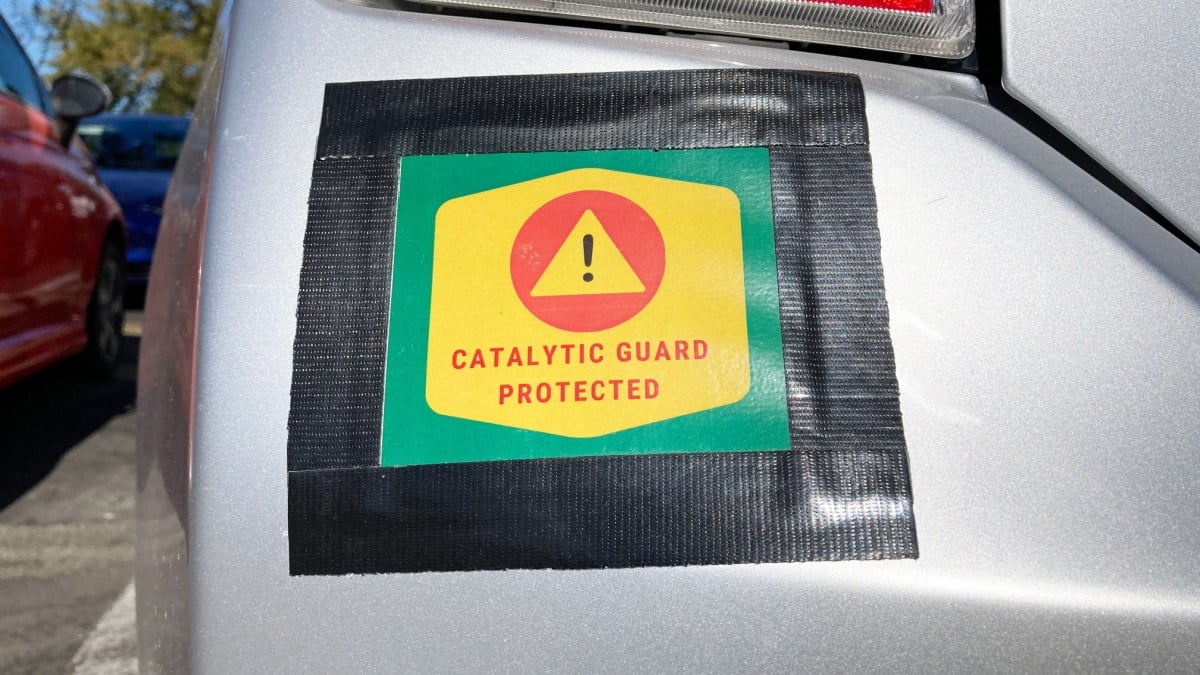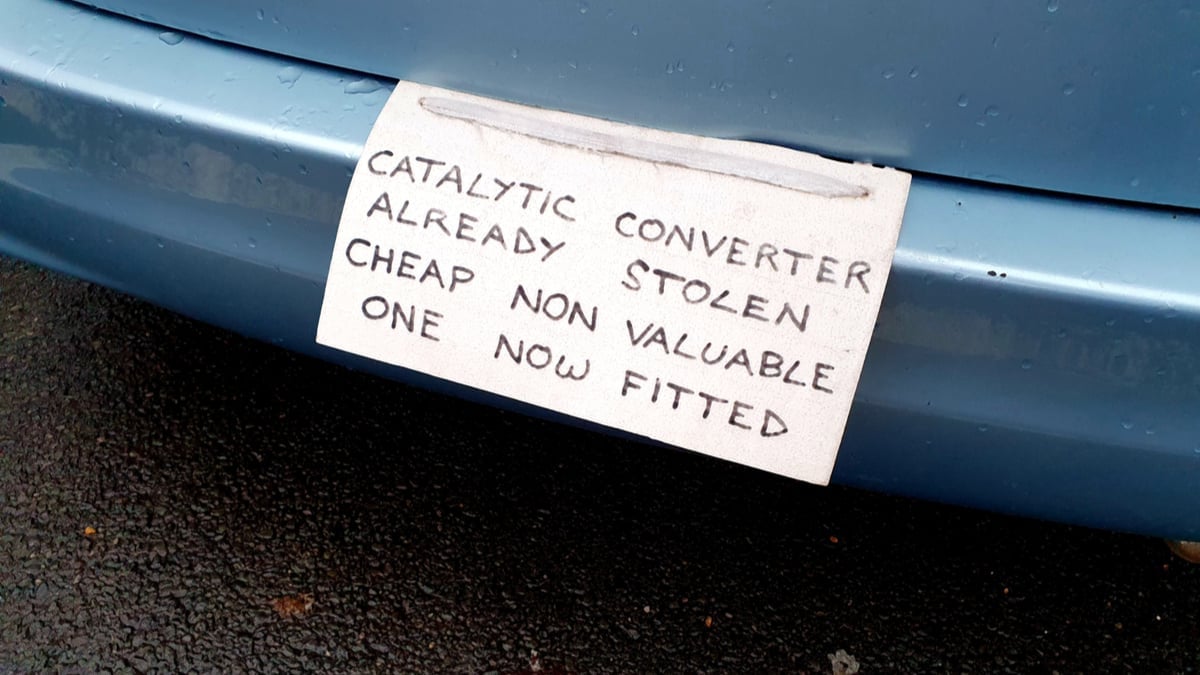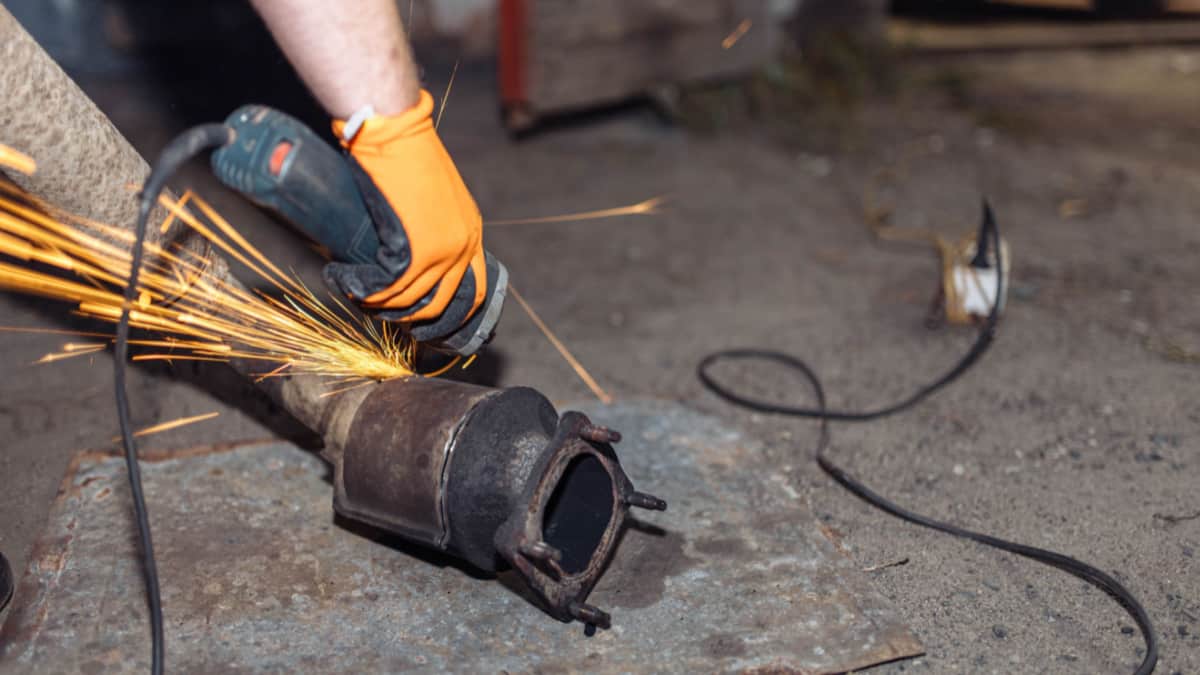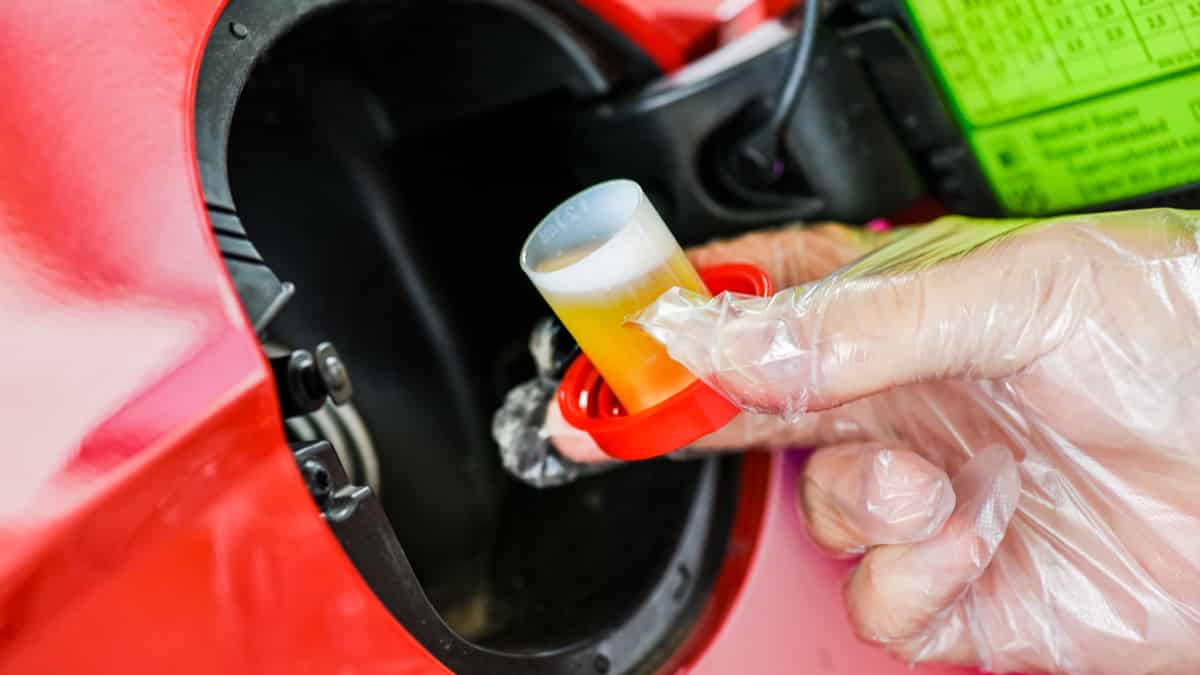Of all the parts on your car, the catalytic converter may be one of the most expensive, which is why it’s commonly a target for theft. It’s the precious metals inside that make this component so valuable, leading you to wonder – how much platinum is in a catalytic converter?
On average, catalytic converter will contain 3 to 7 grams (0.1-0.3 ounces) of platinum. It’s also made of several other materials, such as palladium and rhodium. These materials are worth a lot of money to scrap, even if there are not a lot of them in the catalytic converter.
In this guide, I examine how platinum is removed from the catalytic converter and I discuss the other metals that can be found inside. I also dive deeper into the worth of the catalytic converter and show you how to protect yours from being stolen.
How Much Platinum is Recovered from a Catalytic Converter?
On average, nearly all of the platinum found in the catalytic converter can be recovered during recycling. It might not be 100% of the platinum, but it’s close, with averages hitting 95% or higher. By being able to recover almost all of the 3 to 7 grams of platinum, you get the highest return when it’s time to recycle it.
Platinum prices change frequently, so it’s important to check the current rate at the time of recycling. For example, right now, the average price for an ounce of platinum is around $940.
Additionally, the only way this amount of platinum is recovered is by following an intricate process. It’s important to have a professional handling the materials during recycling.
How is Platinum Removed from the Catalytic Converter?
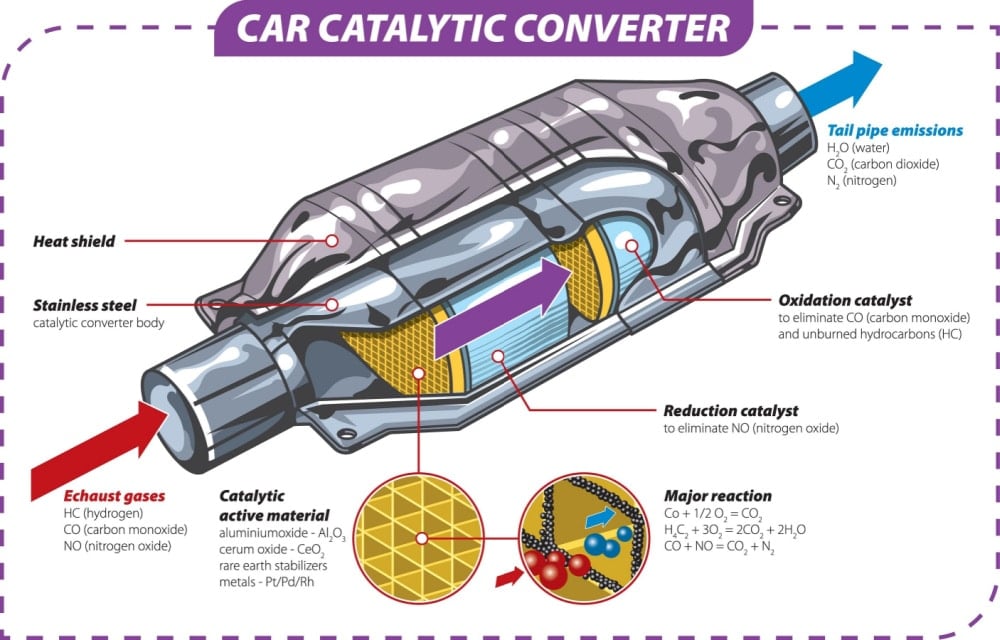
It is best to have a professional remove the platinum and other materials from the catalytic converter, because it’s a dangerous operation. Before anything is done, it’s imperative that all proper safety precautions are followed. By wearing the proper personal protective equipment (PPE), you ensure that toxic fumes aren’t inhaled, thereby preventing dangerous respiratory illnesses.
To get platinum from the catalytic converter, the inner honeycomb must be treated through a leaching process. Because platinum is inert, it will not dissolve in typical acids. Instead, a solution made from a potent oxidizing agent must be mixed with special acids to dissolve the platinum. This leaching process separates the platinum from the base metals for recycling.
Catalytic Converter Materials
Platinum isn’t the only metal people are looking to get out of the catalytic converter. Yes, you can get a lot of money for this precious material, but there’s also the palladium and rhodium included in the construction that are important.
These prices also change often, with the current average topping more than $2,000 per ounce. There’s also rhodium to consider. This is the most expensive of the three, with an average ounce costing $15,000 right now. However, the catalytic converter only houses about a gram of rhodium.
Many people believe that there is gold in the catalytic converter, but that’s not the case. There are no other precious metals included in the catalytic converter, although there are plenty of other materials included in the build. The core or substrate of the catalyst can be made of several different materials, depending on the car. It could be ceramic, which seems to be popular because it’s inexpensive. There could also be metallic foil monoliths constructed of iron-aluminum-chromium combinations.
How Much is a Catalytic Converter Worth?
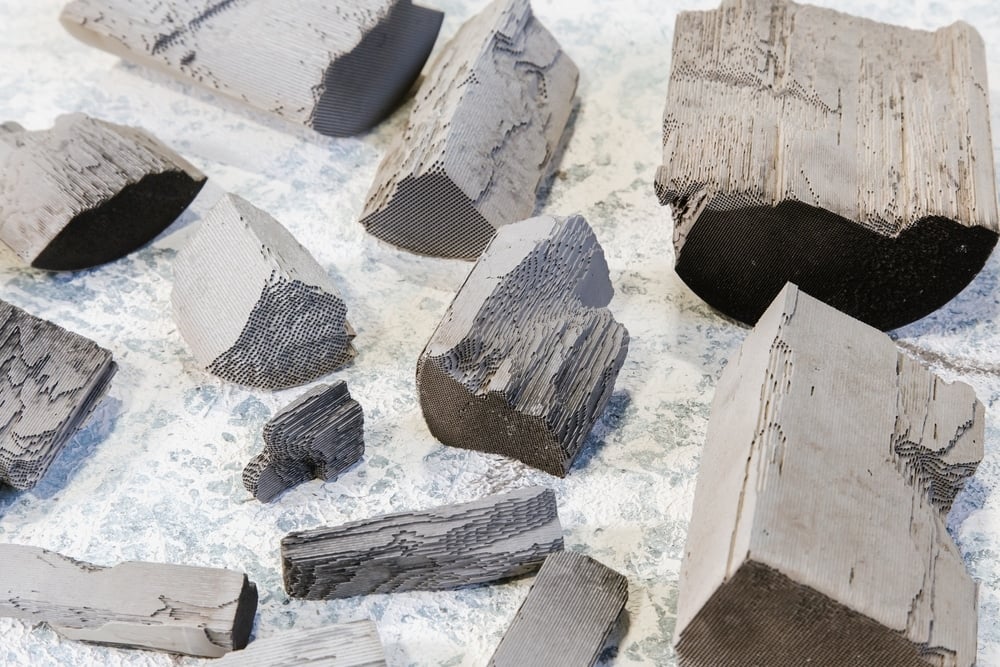
You can take your catalytic converter to the local scrap yard and get cash for it when you are done using it. On average, you could earn anywhere from $50 to $2,000, depending on several factors. It matters what vehicle model the catalytic converter came off of because some have more precious metals than others. It also depends on how used the catalytic converter is, with some degrading in value over time.
Keep in mind that the recycler can’t pay you every dollar for what those metals are worth. They have to perform an expensive leaching process to remove these materials, so you can’t get every penny out of it. The yard also needs to make a profit, too. Still, you aren’t going to get the metals out on your own, nor would you want to. It’s much easier to take it to the recycler and let them do the work while throwing a little money your way.
RELATED: How To Find Catalytic Converter Scrap Value By Serial Number
What Catalytic Converters Have the Most Platinum?
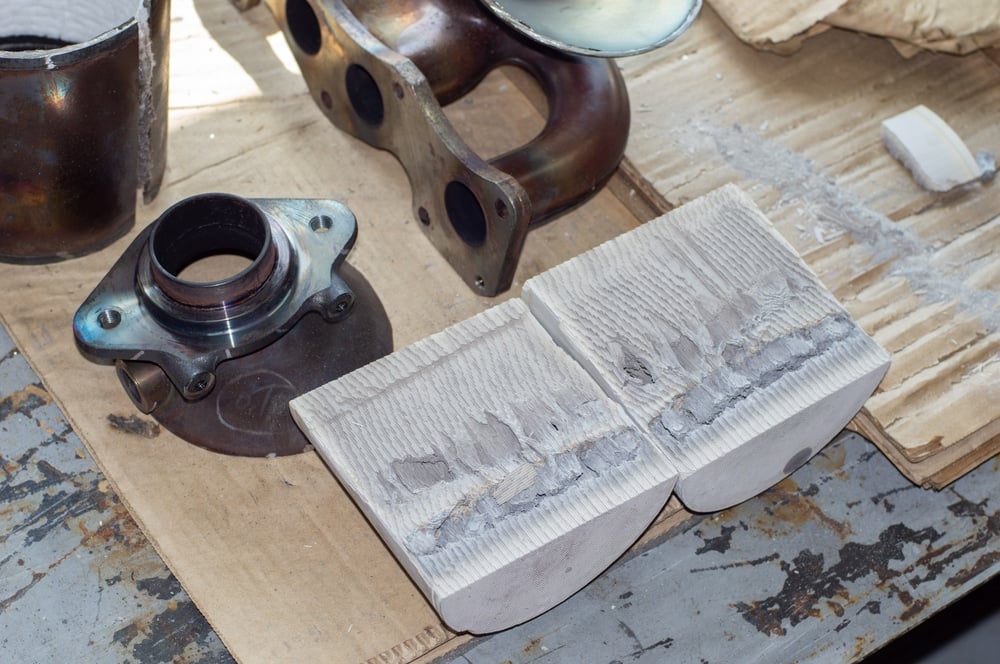
There are some vehicles that are known for having an excessive amount of platinum in the cat construction, which is why the converters are often the target of theft. High-performance cars are often equipped with the ones that are worth the most. As an example, you will get the top price for your Ferrari F430 or Lamborghini Aventador catalytic converter.
However, there are a lot of precious metals in other models that don’t cost this much to drive. You will get a decent amount for your hybrid converter or the Ford Mustang’s cat. Trucks are also on the higher end, with the Super Duty models costing far more. If you know that your vehicle type has an expensive catalytic converter installed, you should be proactive and work towards preventing theft.
RELATED: Which Cars Are Most and Least Likely to Have Catalytic Converters Stolen?
How to Protect Catalytic Converter from Being Stolen
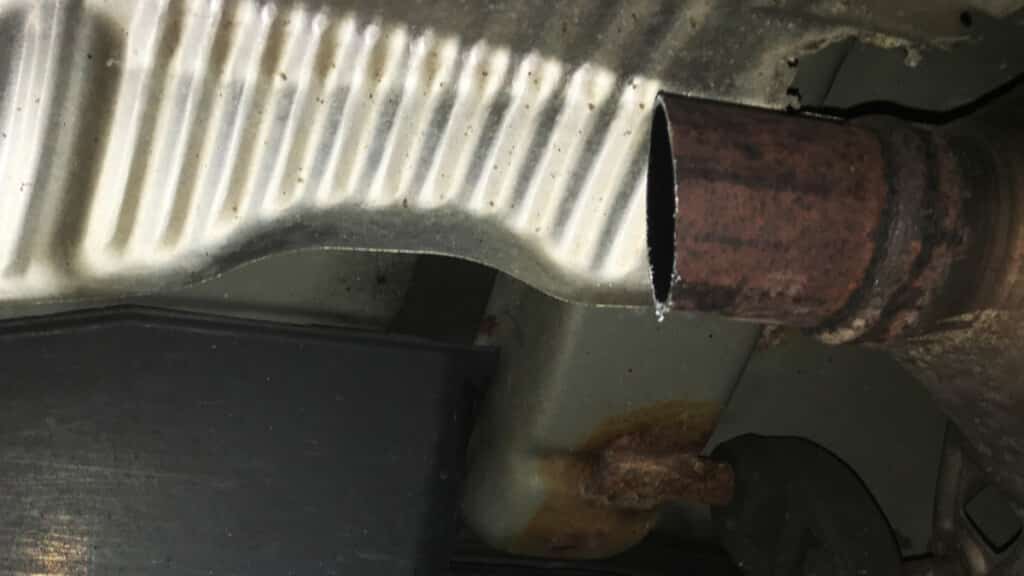
You don’t want to spend the money that comes with putting on a new catalytic converter. This can be one of the most expensive fixes you ever deal with on your vehicle, not because of the labor cost but because of the component itself. For this reason, it makes more sense to prevent catalytic converter theft from occurring upfront.
Here are a few tips to keep your car protected.
- Know what cars are targeted. It’s important to know if thieves are after your catalytic converter. In general, many trucks, SUVs and hybrids top the list. You also have to worry about theft if you drive an expensive, luxury car.
- Etch the VIN on your catalytic converter. If a scrap dealer receives this catalytic converter, they might be more apt to reach out to authorities before paying for it. You may also consider painting the catalytic converter. Most thieves won’t want to deal with this identification, and police departments often recommend the practice.
- Be mindful of where you park. If you are in a public place, park where there’s plenty of light and traffic. At home, you should attempt to park in a garage or at least somewhere that you can monitor the vehicle closely.
- Install an alarm on the vehicle. Consider setting the sensitivity so people can’t get close to the vehicle without it going off. This could be annoying, especially if you park in busy areas, so use your judgment accordingly.
- Provide more security at home. Install cameras in the area and motion-activated lights that help you notice when there’s a problem.
None of these steps require a lot of effort to follow through on. When you factor in the time spent preventing catalytic converter theft versus the cost to replace it, you see how valuable these practices can be.
RELATED: How To Protect Your Car Against Catalytic Converter Theft
How much gold is in a catalytic converter?
There is no gold in catalytic converters. Platinum, rhodium, and palladium are the precious metal that you will find in a catalytic converter, which can be sold for high prices.
How Much Rhodium Is In A Catalytic Converter?
A catalytic converter usually contains 1 to 2 grams (0.03-0.07 ounces) of rhodium, but it depends on the type of catalytic converter. The price of rhodium can vary greatly depending on market conditions, but it generally has a very high value.
How Much Palladium Is In A Catalytic Converter?
You will find 2 to 7 grams (0.07-0.25 ounces) of palladium in a catalytic converter, depending on which type of catalytic converter it is. The price of the catalyst will vary depending on how much of the precious metals palladium, platinum and rhodium it contains.
Can you sell just the inside of a catalytic converter?
Even if the precious metals that scrap yards are interested in are found in the inner part of the catalytic converter, it can cause problems for them to identify it. If they can’t identify the catalytic converter, they may not be able to pay you that much money, so you will most likely get paid more by selling the whole catalytic converter.
Categories: Exhaust
